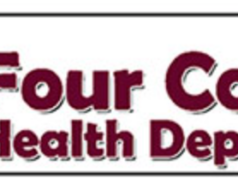Press Release: From Four Corners Health Department
May is Melanoma and Skin Cancer Awareness Month. Skin cancer is the most common type of cancer. The earlier it’s found, the more helpful treatment can be. Anyone can be affected, but some are at a higher risk than others. Melanoma is a type of skin cancer less common but known to cause the most death due to how it spreads in the body.
Skin cancer is one of the most preventable cancers. Being outside can be a good thing. It’s our main source of vitamin D, which helps us take in calcium for stronger, healthier bones. But, repeated, unprotected time under the sun’s ultraviolet rays can cause skin damage, eye damage, skin cancer, and more!
Follow these tips to stay safe in the sun and protect your skin.
- Avoid staying out in the sun between 10 a.m. and 4 p.m. Seek shade.
- If you must work in direct sunlight, take regular breaks in the shade.
- Dress right! Cover up with clothes that protect you. Guard as much skin as you can.
- Use sunscreen and lip balm.
- Choose a product that covers all types of the sun’s rays (UVA, UVB) and a sun protection factor (SPF) of 15 or higher. The higher the number, the better.
- Put on a good amount of sunscreen at least 15 minutes before going outdoors.
- Reapply every 2 hours and after swimming, toweling dry, or sweating.
- Sunscreen doesn’t protect from all UV rays. Don’t use sunscreen as a way to stay out in the sun too long.
- Cover your head with a wide-brimmed hat. Be sure it shades your face, ears, and neck. If you wear a baseball cap, remember to protect your ears and neck with sunscreen.
- Wear sunglasses with 100% UVA and UVB absorption. This is the best protection for the eyes and the nearby skin.
- Follow these habits even on cloudy or overcast days. UV rays can travel through clouds.
- Avoid tanning beds. These are also harmful to your skin.
Look at your skin regularly. Skin cancer can be found anywhere on the body. Check your body all over for any moles or growths that are changing, growing in size, bleeding, or that look different from the rest. The best way to do this is to stand in front of a full-length mirror and use a hand mirror to help. Take note if something unusual shows up and mention it to your doctor or dermatologist.
To learn more about sun safety and skin cancer, go to https://www.cdc.gov/cancer/skin/basic_info/sun-safety.htm.
For questions or to learn more, call Four Corners at 402-362-2621 or 877-337-3573. You can also email us at info@fourcorners.ne.gov.
Visit the Four Corners website at https://fourcorners.ne.gov. Follow us on Facebook, Instagram, and Twitter. Subscribe to our YouTube channel @fc_healthdept!



































